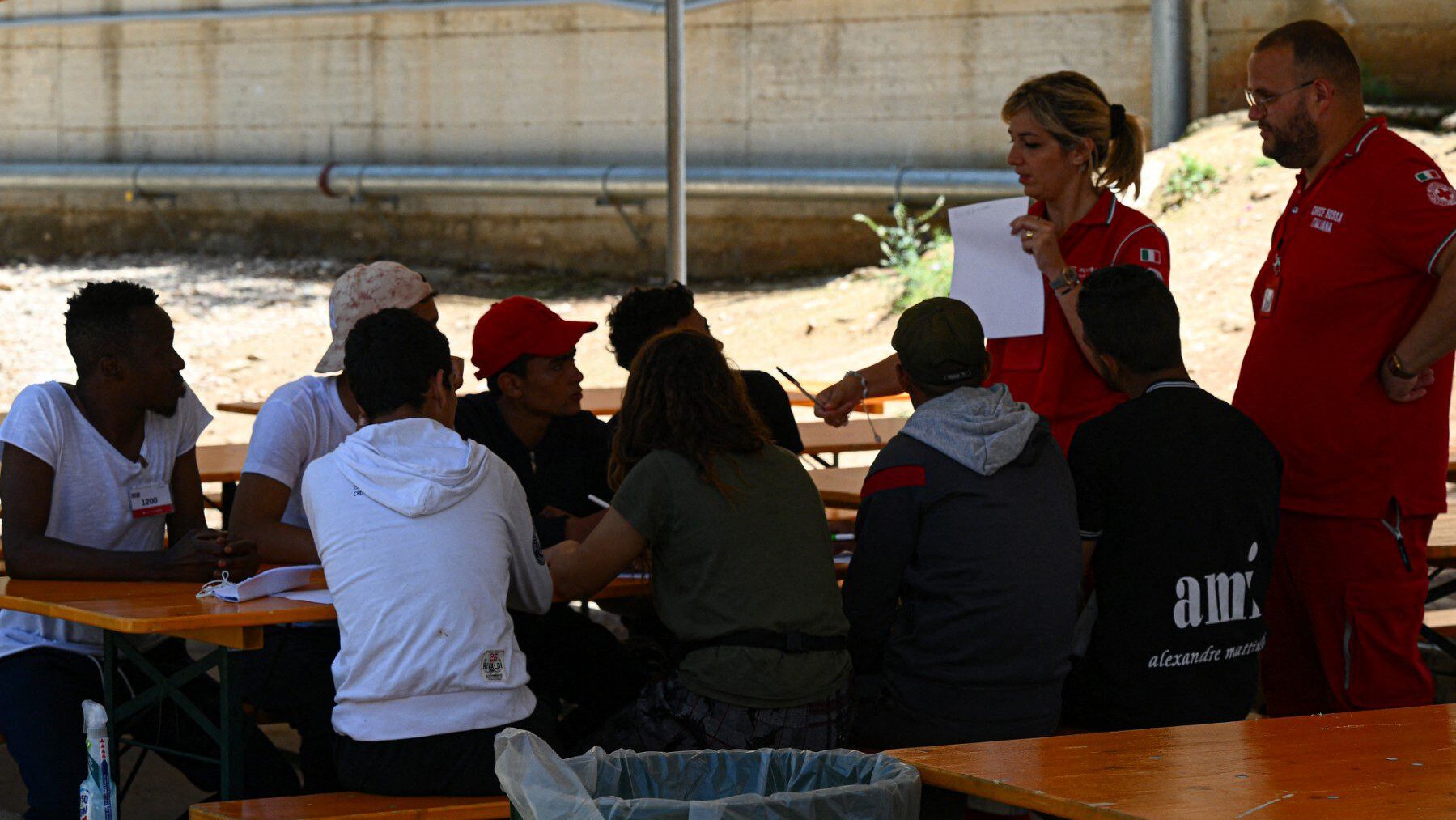
The current age verification procedure rarely involves anything more “invasive” than simple interviews.
Photo: VINCENZO PINTO / AFP
Abusing the asylum system by faking one’s age is an all-too-common occurrence in Italy, but that could change soon.
Giorgia Meloni’s conservative Italian government has begun to overhaul its current legislation on unaccompanied minors arriving on its shores to root out fakers looking for an easy way in and securing further benefits, Il Giornale wrote on Sunday, September 10th.
According to the journal, the Interior Ministry is preparing the new legislation as we speak, with concrete age verification proposals expected to be put forward in the coming weeks. “We need to intervene by providing objective criteria for determining age,” MP Sara Kelany, the ruling Fratelli d’Italia migration chief said, adding:
Self-certification is an absolutely insufficient system because it means that whoever arrives in our territory—in the vast majority of cases—declares himself to be 17 years old, often not being so.
According to the Interior Ministry’s official data, around 70% of minor refugees who arrive in Italy declare themselves to be 17 years old—enough in itself to raise suspicions, especially since the overwhelming majority do not carry any identification documents to back up their claims.
Under Italy’s ‘Zampa law’ of 2017, the one that is set to be amended soon, unaccompanied children not only have an instant right to asylum but are entitled to adequate housing, education, health services, and even family reunification options. While the law allows age determination to be carried out in case of “reasonable doubt,” it requires authorities to use the “least invasive methods possible.”
Currently, age verification takes place by specialized social workers and cultural mediators in each migrant reception center, and usually means one or more interviews to assess the credibility of the claims. Medical examinations may follow if the results are inconclusive, but migrants have the right to—and usually do—refuse all physical tests. If any doubt persists, the minor status is granted automatically.
Naturally, this resource-heavy, slow, and ineffective system needs to be reformed. Of course, the Zampa law’s updated version will not take away any of the legal benefits child refugees are provided, but only seek to make sure the system is not abused by adults pretending to be minors and thus draining resources that would otherwise help actual children.
“We do not want in any way to reduce the rightful protections to which unaccompanied minors are entitled, but we believe that faster and more precise procedures are needed to determine who is really eligible,” Kelany explained. “The ineffectiveness of the current rule is there for all to see.”
